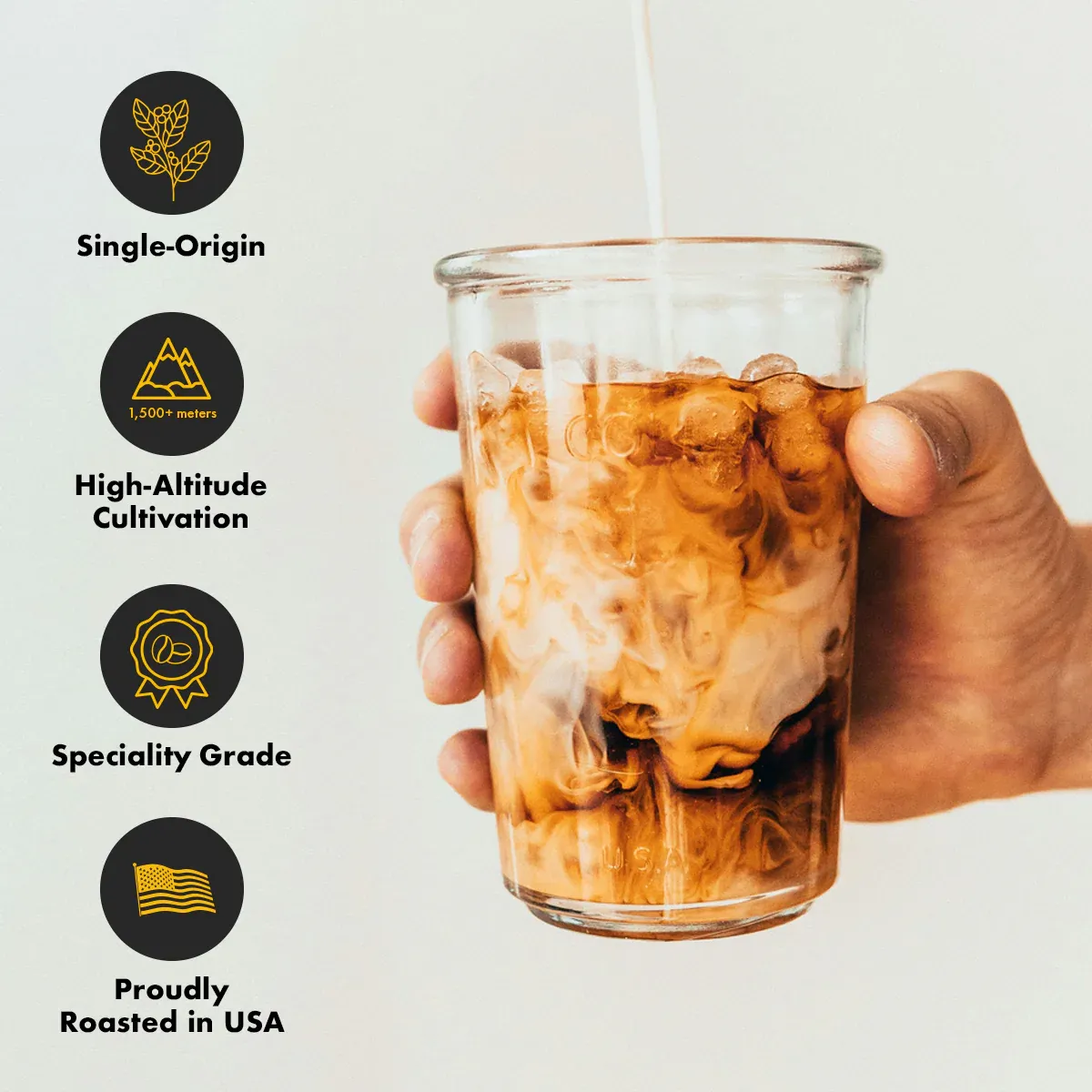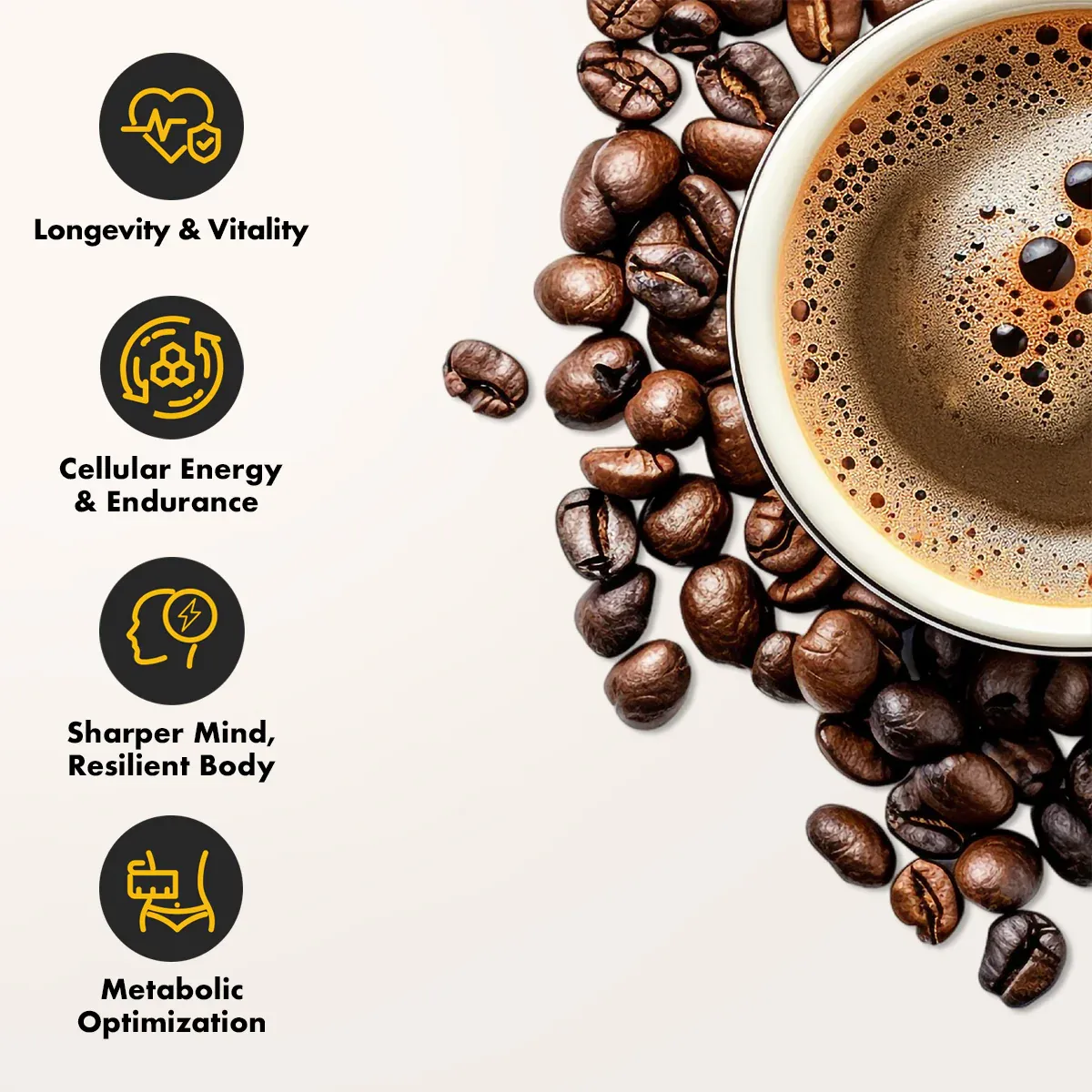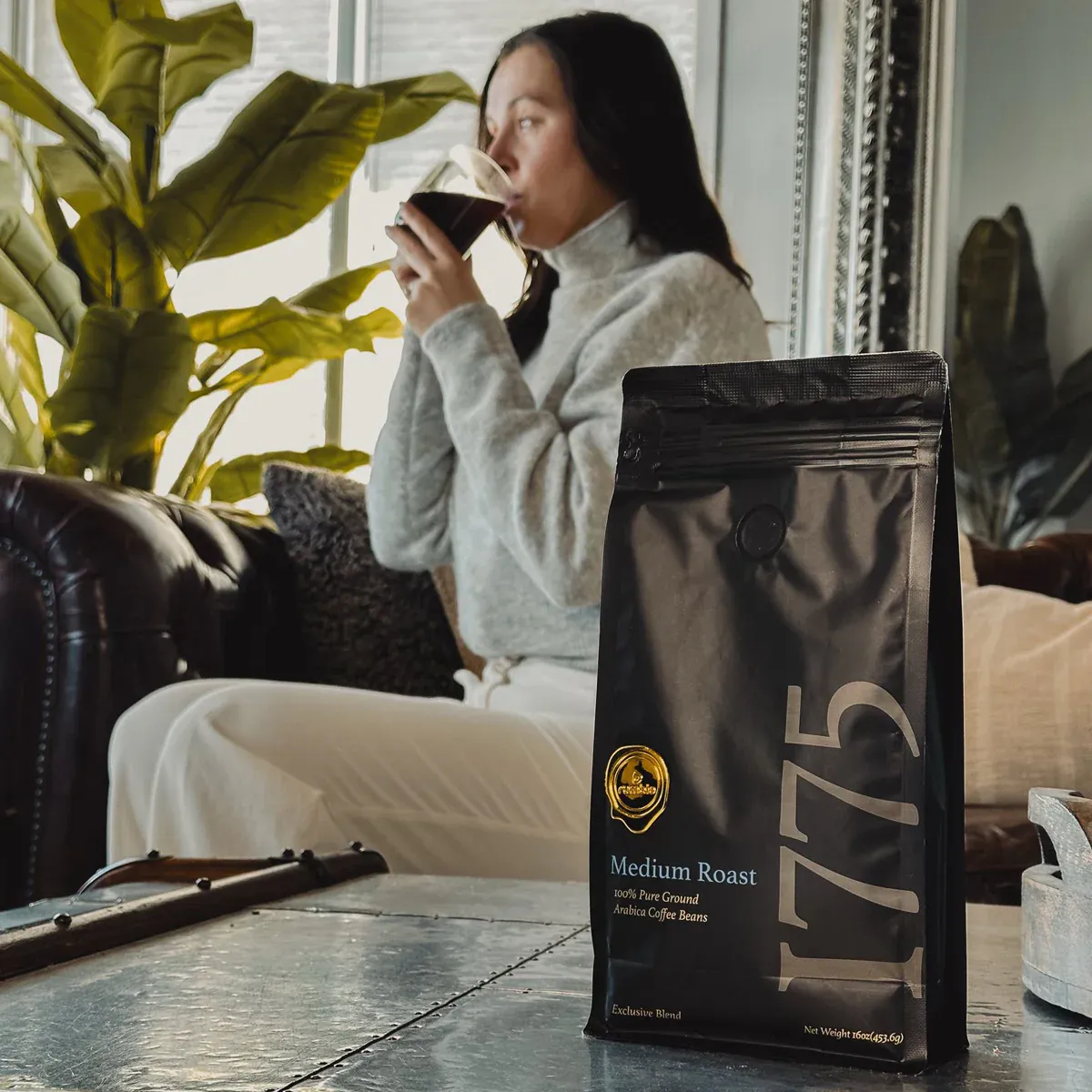Table of Contents
The morning mistake that's robbing you of coffee's most powerful benefits
If you're among the 73% of American adults who kick-start their day with coffee, you know how it feels to get things going. There are plenty of benefits to having a cup of Joe in the morning, but most people miss a trick.
For most, you get up, stick the machine or kettle on, load up on caffeine, and away you go. However, this actually doesn't help your body get the most from coffee, and actually may cause harm.
Drink too early after waking up, and it can be as bad as actively sabotaging your body's natural hormone cycles and potentially building tolerance to caffeine's powerful effects.
"Right after waking, your body releases cortisol, a hormone linked to alertness. Drinking coffee during this spike may feel redundant," explains nutritionist Zara Hiridgee. What's worse, this timing actually INTERFERES with your body's natural processes rather than enhancing them.
The groundbreaking solution?
Wait 90 minutes after waking for your first cup.
This simple timing shift aligns perfectly with your body's natural cortisol trough – when your alertness hormone naturally dips – maximizing coffee's cognitive and metabolic benefits while preventing potential downsides.
But timing is just the beginning of what science has uncovered about your morning cup...
Coffee drinkers live longer (and science finally knows why)
First, let's start with the benefits of coffee and why we even want to consider it in the first place. No doubt you've seen people advocating it and claiming it's the worst thing ever.
So, for one, the evidence is now overwhelming: coffee drinkers live significantly longer lives. A landmark study in the Annals of Internal Medicine found that moderate coffee consumption (1.5-3.5 cups daily) slashed death risk by a remarkable 30% during the study period.
Even adding sugar didn't eliminate these benefits.
But why does coffee have such profound effects on longevity?
The answer lies in a stunning 2023 discovery published in Nature Microbiology.
Scientists found that coffee consumption dramatically increases gut bacteria called Lawsonibacter asaccharolyticus – with coffee drinkers having 6-8 times more of this beneficial microbe than non-drinkers.
These bacteria produce quinic acid, which reduces inflammation and oxidative stress throughout the body.
"The single food having the biggest impact on the composition of the gut microbiome was—by far—coffee," explains lead researcher Nicola Segata, PhD.
This gut-brain connection helps explain why coffee drinkers show a 27% lower risk of cognitive disorders and substantial protection against neurodegenerative diseases.
The benefits extend across multiple body systems – from a 19% lower risk of cardiovascular mortality to a 6% reduced diabetes risk per daily cup consumed.
For coffee drinkers with Type 2 Diabetes, research shows a stunning 30% lower death rate compared to non-coffee drinkers.
All certainly worth thinking about.
Morning people vs. night owls: Your chronotype changes EVERYTHING
Moving more into what time is best for you to drink coffee to get the most benefits AND align with your natural rhythms, you may have heard of a little thing called "chronotypes."
You may know this from being a "morning lark" or "night owl", referring to your natural circadian rhythm, when you sleep, when you have the most energy, and so on. So, it makes sense that it'll vary when you drink coffee, depending on your type.
And it does.
Research from Stanford University found that "morning people" are significantly more sensitive to caffeine's sleep-disrupting effects than night owls.
Morning types should restrict coffee to before 2:00 PM, while night owls can often tolerate afternoon caffeine without sleep disruption.
Recent research has expanded beyond this binary classification, identifying at least six distinct chronotypes that respond differently to coffee:
- Morning type (traditional "lark")
- Evening type (traditional "owl")
- Highly active type
- Daytime sleepy type
- Daytime active type
- Moderately active type⁷
Your genes also determine how quickly you metabolize caffeine. People with the AA genotype of CYP1A2 (fast metabolizers) process caffeine up to four times faster than those with AC or CC genotypes (slow metabolizers).
Slow metabolizers who consume more than 3 cups daily show increased risks of hypertension and cardiovascular issues.
This genetic variance means personalization is crucial – what works for your friend might be completely wrong for you.
The protein coffee revolution: Why everyone's adding protein to their morning cup
That's right; protein isn't just a concern for bodybuilders and vegans, nor a fad of a coffee trend. We all know protein is one of the major food jobs, essential for a healthy lifestyle, yet one doctor found that nearly 80% of their patients weren't getting enough.
While the amount we need is certainly individualized to our bodies and lifestyle, chances are you're not getting enough either. So, why not add some to your coffee to increase your intake naturally?
Again, not a fad, but backed by serious science.
"Proffee" (protein coffee) combines caffeine's stimulant effects with protein's nutritional benefits for a science-backed performance boost.
The global high-protein coffee market is exploding, with projected CAGR growth of 12% by 2034 - an industry worth over 14.71 billion USD. This functional beverage category offers multiple evidence-based advantages:
- Enhanced exercise performance: Caffeine improves mental focus and physical output while protein supports muscle recovery
- Increased satiety: Protein triggers fullness hormones, potentially reducing overall daily calorie intake
- Metabolism support: Both coffee and protein require more energy to digest than carbohydrates
- Better protein distribution: Research indicates protein consumption should be spread throughout the day for optimal muscle synthesis¹⁰
The most popular methods include adding whey, casein, collagen, or plant-based protein powders directly to coffee.
Ready-to-drink options and specialized protein coffee creamers are gaining market share, with North America currently leading but significant growth projected in Europe and the Asia-Pacific regions.
And as with any health product, you'll get the best results when you think of it as a supplement to your nutrition plan, not a complete meal replacement.
1775 Coffee: Premium beans with functional benefits
While we're on the topic of premium coffee and all the benefits it provides, it's worth remembering that the best experience is only possible when you're actually using quality beans.
Premium product means premium experience. Lesser quality means you're getting what you pay for.


If you're an avid coffee drinker and actually want what's best, there's no doubt that 1775 Coffee has emerged as a noteworthy contender.
Use promo code RIFT for 10% off at checkout.
Founded in 2023 and based in Miami, this relative newcomer sources exclusively high-altitude Arabica beans from Bolivia's Yungas region, where elevations over 1,200 meters create slower-growing beans with more complex flavors.
It's rapidly gone on to find itself endorsed by the likes of Jimmy Dore, Russell Brand, and even POTUS Donald Trump, showcasing itself as the coffee of choice for high-performers.

The specialized product lineup includes standard offerings (Medium Roast, Dark Roast, Premium Peaberry) alongside functional products that align with current trends:
- Vitality Mushroom Coffee containing Lion's Mane, Cordyceps, Reishi, Chaga, and Turkey Tail
- Rejuvenate Anti-Aging Coffee for longevity support
- Power+ Protein Creamer with 10g protein per serving (zero sugar, zero fat)
Developed with an extensive production process that includes an 18-hour fermentation period, with beans handpicked and sorted under UV lights. The company claims their coffees consistently score +85 on the cupping scale, placing them in the specialty coffee category.
Free from the harmful substances and chemicals you'll find in other brands, the best way to see just how good good coffee is is to try it for yourself.
Use promo code RIFT for 10% off at checkout.
The shocking milk discovery that's transforming coffee science
Drink milk with your coffee?
Perhaps you weren't made aware of the unexpected recent discovery that challenges the belief that black coffee is the healthiest, allowing you to make the best choice for you.
Researchers at the University of Copenhagen found that combining coffee with milk creates a powerful anti-inflammatory effect that's twice as strong as coffee alone.
The combination of proteins from milk and polyphenols from coffee creates a synergistic effect that enhances anti-inflammatory properties in immune cells. Professor Marianne Nissen Lund explains: "As a polyphenol reacts with an amino acid, its inhibitory effect on inflammation in immune cells is enhanced."
This finding aligns with research showing coffee drinkers have significantly lower rates of chronic inflammatory conditions, including a reduced risk of cardiovascular disease (15%), type 2 diabetes (6% per cup), and certain cancers (18% lower risk with high consumption).
Beyond milk, several other science-backed additives are gaining popularity:
- MCT oil has become a favorite among keto diet followers. Research indicates MCTs are quickly absorbed by the liver, providing rapid energy, enhancing cognitive function, and potentially increasing fat oxidation.
- Collagen has emerged as another popular addition, with studies suggesting benefits for skin elasticity, joint health, and gut integrity.
- Adaptogenic mushrooms have created an entirely new category, with Lion's Mane (for cognition), Chaga (immune support), Reishi (stress reduction), and Cordyceps (energy) appearing in coffee products despite limited clinical evidence. Their popularity stems from traditional use and preliminary research showing potential wellness benefits.
How to perfect your morning ritual: The 7-step science-based approach
Based on the latest research, here's the optimal science-backed morning coffee approach:
- Wait 90 minutes after waking to have your first cup, allowing your natural cortisol peak to subside.
- Consider your chronotype – morning types should finish coffee earlier, while night owls have more flexibility
- Add protein strategically, especially if planning morning exercise or needing sustained energy
- Don't fear milk – it may actually enhance coffee's anti-inflammatory benefits
- Choose high-quality beans from specialty producers like 1775 Coffee for maximum beneficial compounds
- Aim for 3-4 cups daily – research shows this amount provides the greatest overall health benefits
- Consider functional additions based on your specific health goals – MCT oil for metabolism, collagen for skin and joints, or adaptogenic mushrooms for stress response
The science is clear: your morning coffee ritual isn't just a pleasure – it's a powerful opportunity to enhance your health, longevity, and performance when optimized correctly.
The scientific verdict: Coffee's disease-fighting potential
So, bringing all this together, it's clear that the evidence supporting coffee's health benefits has never been stronger.
From extraordinary gut microbiome effects to brain protection, reduced mortality, and metabolic advantages, coffee offers remarkable wellness potential beyond the energy boost.
Remember, the key findings include:
- Brain health: Coffee consumption is linked to a 27% lower risk of cognitive disorders and substantial protection against neurodegenerative diseases
- Cardiovascular protection: Regular coffee drinking is associated with a 31% less likely to die of cardiovascular mortality
- Cancer risk reduction: High coffee consumption correlates with an 18% lower risk of certain cancers
- Metabolic benefits: Each daily cup is linked to a 6% reduced diabetes risk, with coffee drinkers showing improved glucose metabolism
- Anti-inflammatory effects: Coffee drinkers have significantly lower rates of chronic inflammatory conditions, with milk enhancing these anti-inflammatory properties
- Gut microbiome enhancement: Coffee dramatically increases beneficial gut bacteria that produce anti-inflammatory compounds
By timing consumption strategically, matching to your chronotype, considering functional additions like protein, and choosing quality beans, you can transform your daily ritual into a science-backed health practice that could genuinely extend and improve your life.
Coffee isn't just a morning pleasure – it's one of the most powerful (and enjoyable) health interventions available to you.
The science is clear: Optimize your coffee ritual, and you optimize your health.





